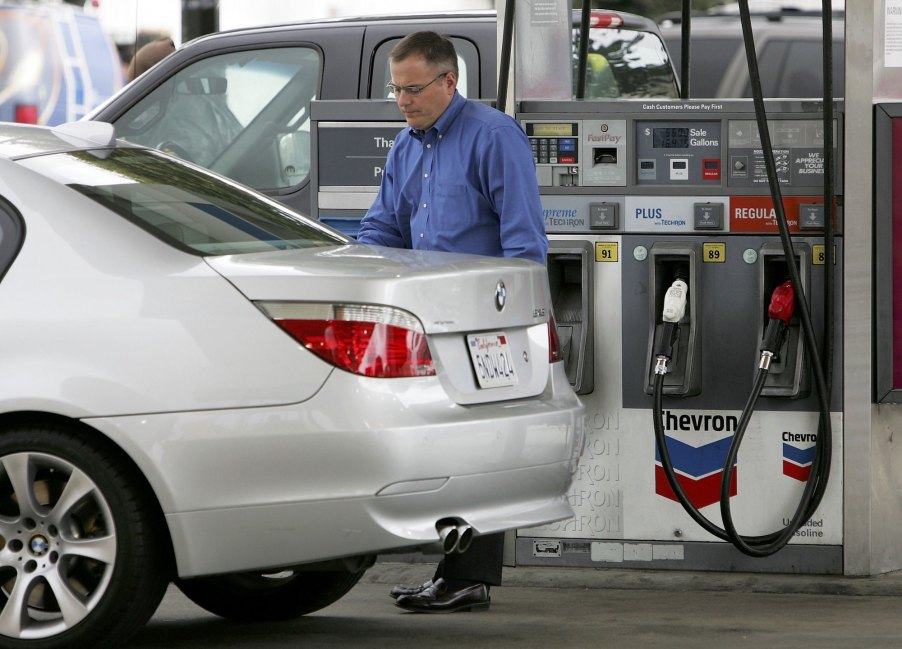
Does Premium Gas Damage Regular Cars?
It’s not uncommon to see a manufacturer’s recommendation to fill luxury vehicles and sports cars with premium gas for the best gas mileage and performance. Because those models are designed with high-performance parts and systems, premium gas helps preserve and protect those components. And if you expect your sports car to rev like one, you shouldn’t put anything else in the tank.
But what about a little role reversal? Gas mileage matters when you’re shopping for a regular vehicle too. But are there any adverse effects to pumping higher-octane fuel into your daily driver besides the notable increase in fuel costs?
The difference between regular and premium gas

When you pull into a gas station, you usually see pumps marked with different colors and labels. Most Americans seek out regular unleaded gas simply because it’s the lowest of the three gas prices listed. And it’s common because most drivers assume regular unleaded gas is all they need.
Regular gas is cheaper for a reason: It has a lower octane rating. According to Kelley Blue Book, octane is a measurement of the fuel type’s overall stability. The higher the octane, the greater the stability. Regular gas typically rates at 87. The mid-grade level is usually rated at 89 octane. And premium gas can range from 91 to 94 octane.
So it stands to reason that choosing the gas with the highest ability to resist the pinging and knocking associated with the combustion process is the best way to go. But is it really best if you’re not driving a high-performance vehicle?
So, will premium gas hurt your regular car?
Unless you drive a behemoth older-model SUV or truck experiencing loud knocking and pinging, stick with regular unleaded gas for your regular car. Premium gas can be helpful in those noisy situations but not much else, according to Geico. Your owner’s manual will tell you what gas type is recommended, and it’s best to stick with that suggestion.
That said, putting premium gas in a regular car won’t hurt it. But you’ll certainly spend more per gallon, and your regular car won’t get better fuel economy with high-octane fuels.
Ideally, any car with a high-compression engine or parts, or even turbochargers, deserves premium gasoline. The rest of the world can settle for regular.
But what if you put diesel fuel in a gas car?
One mistake you don’t want to make is putting diesel fuel in your traditional gas-powered car. Diesel fuel can sometimes be cheaper, making it appealing to grab that green handle. But don’t do it.
Diesel has a significantly lower octane rating of 25 to 30, Metromile explains. That means the lower compression levels could seriously damage your vehicle’s engine. If you accidentally fill your gas car with diesel, don’t drive anywhere. Call your dealership or service technician and get your vehicle towed and drained to prevent killing your engine.
Diesel fuel is intended for operation in diesel engines only. Plenty of passenger vehicles have these engines, including a few Volkswagen models. You can find diesel engine variations in many heavy-duty pickups from Ford, Chevy, GMC, and Ram.
If the manufacturer says to use regular unleaded gas in your car, stick with the regular. Premium gas won’t necessarily offer any benefits, and it’ll cost more. And diesel, despite its occasional price drops, could cost you a pretty penny in repairs.


